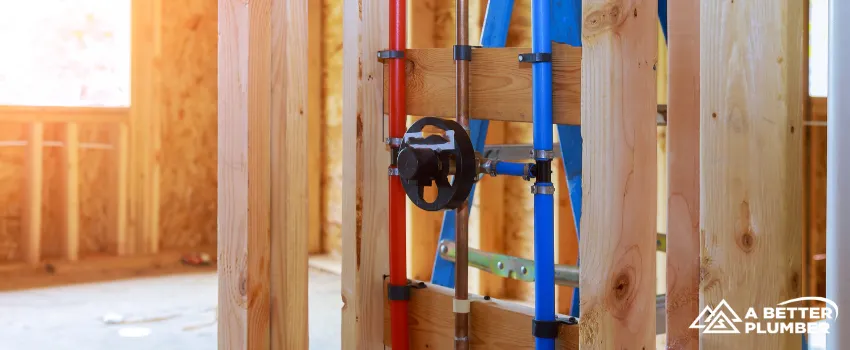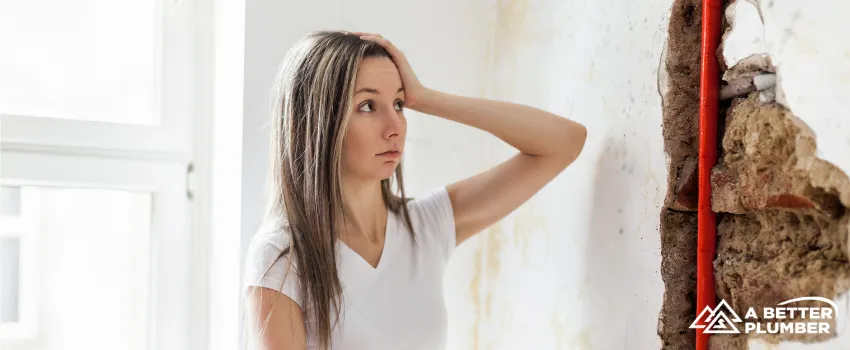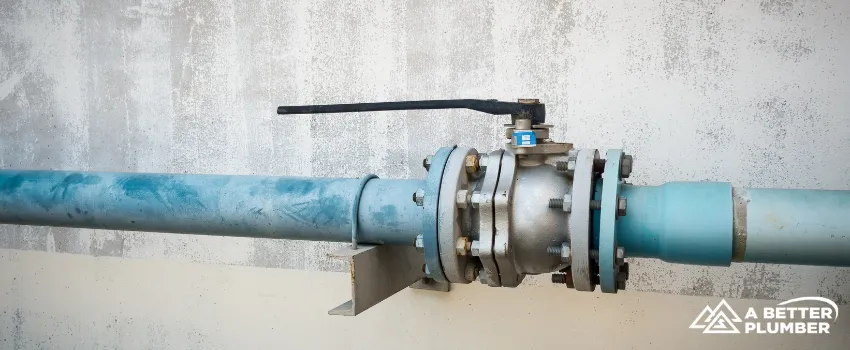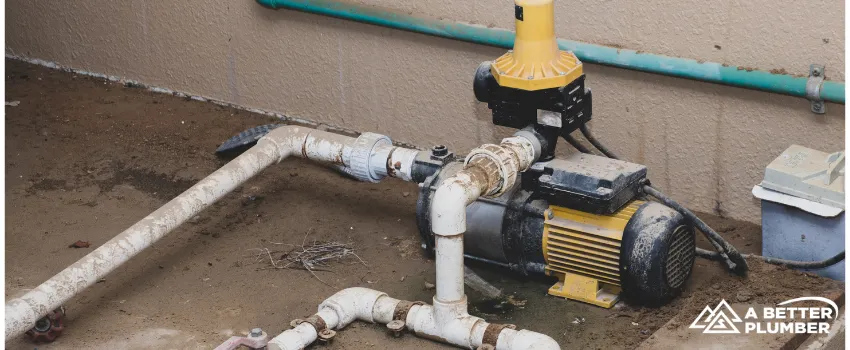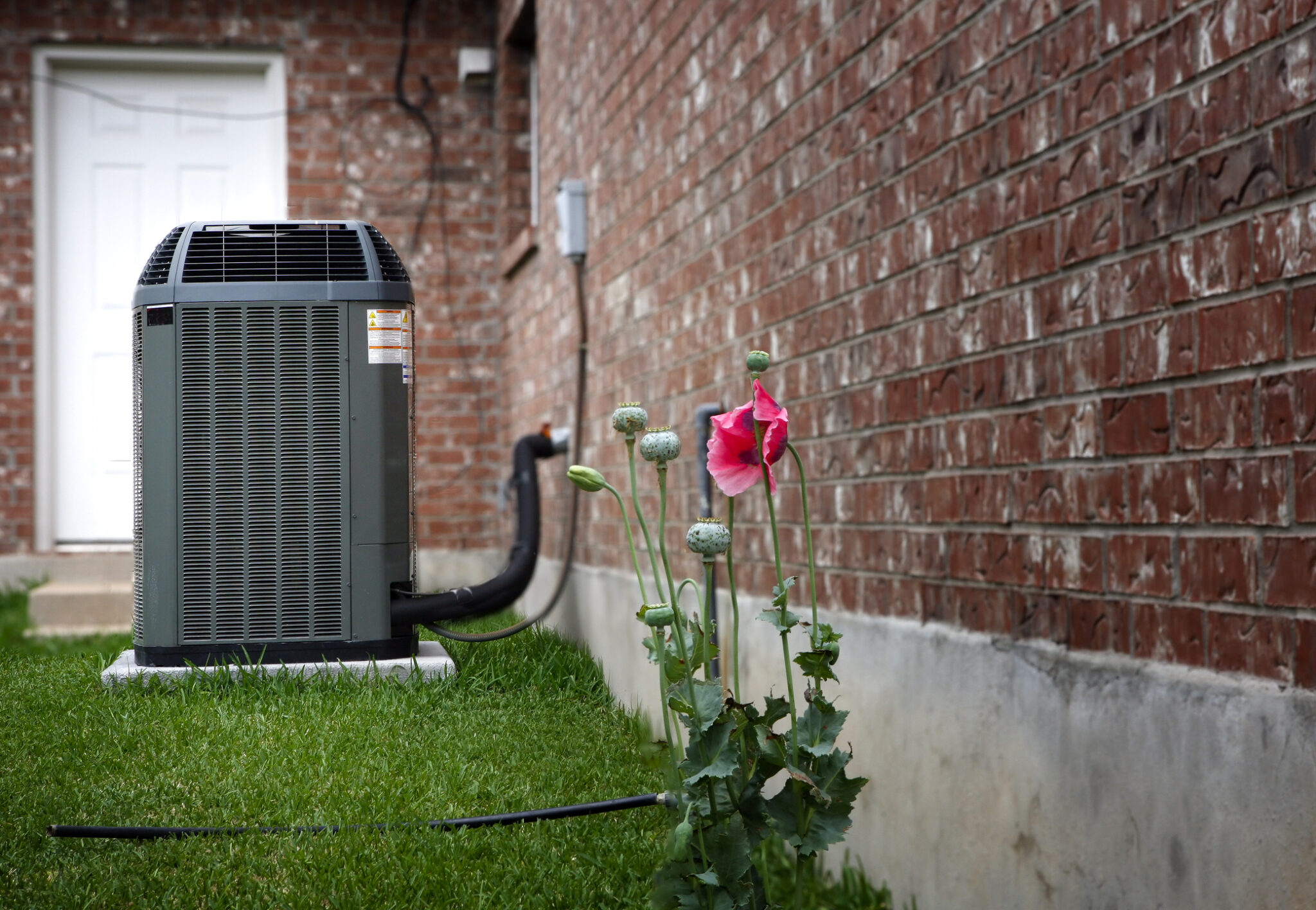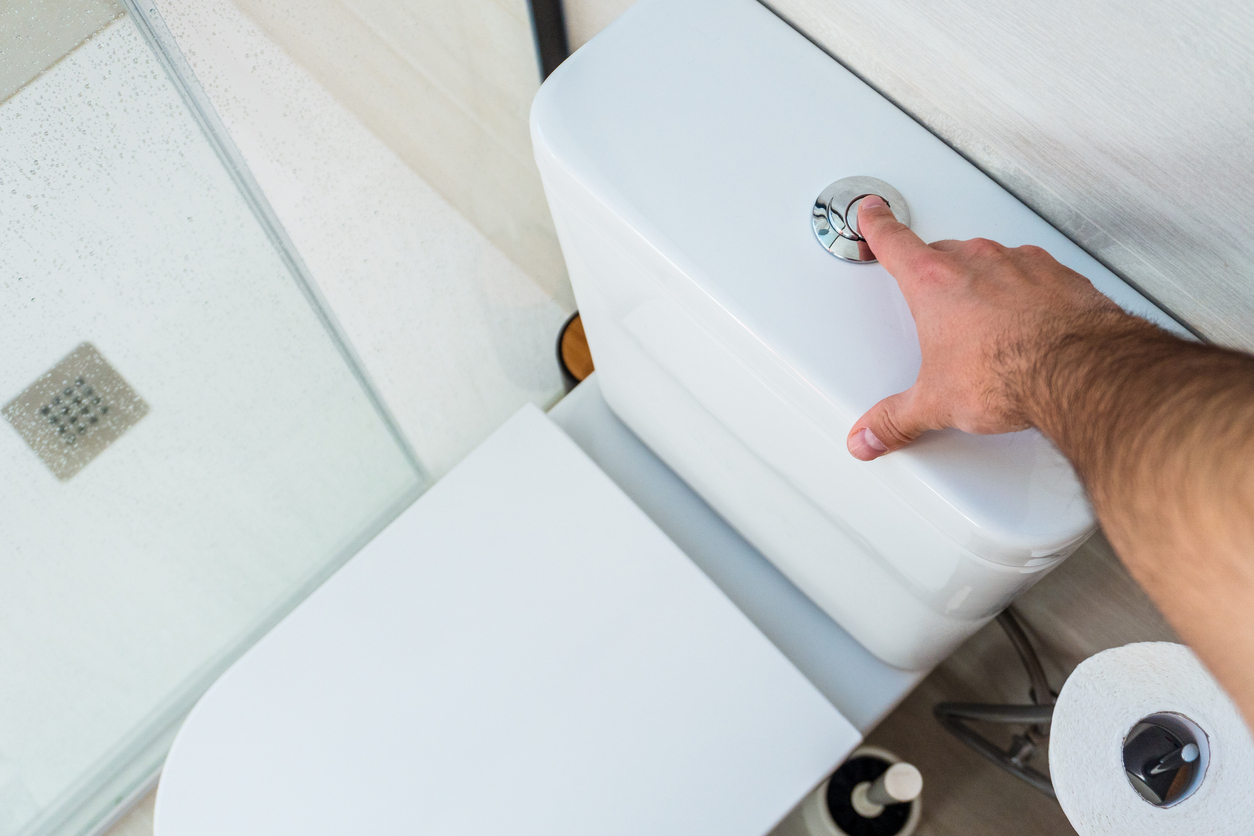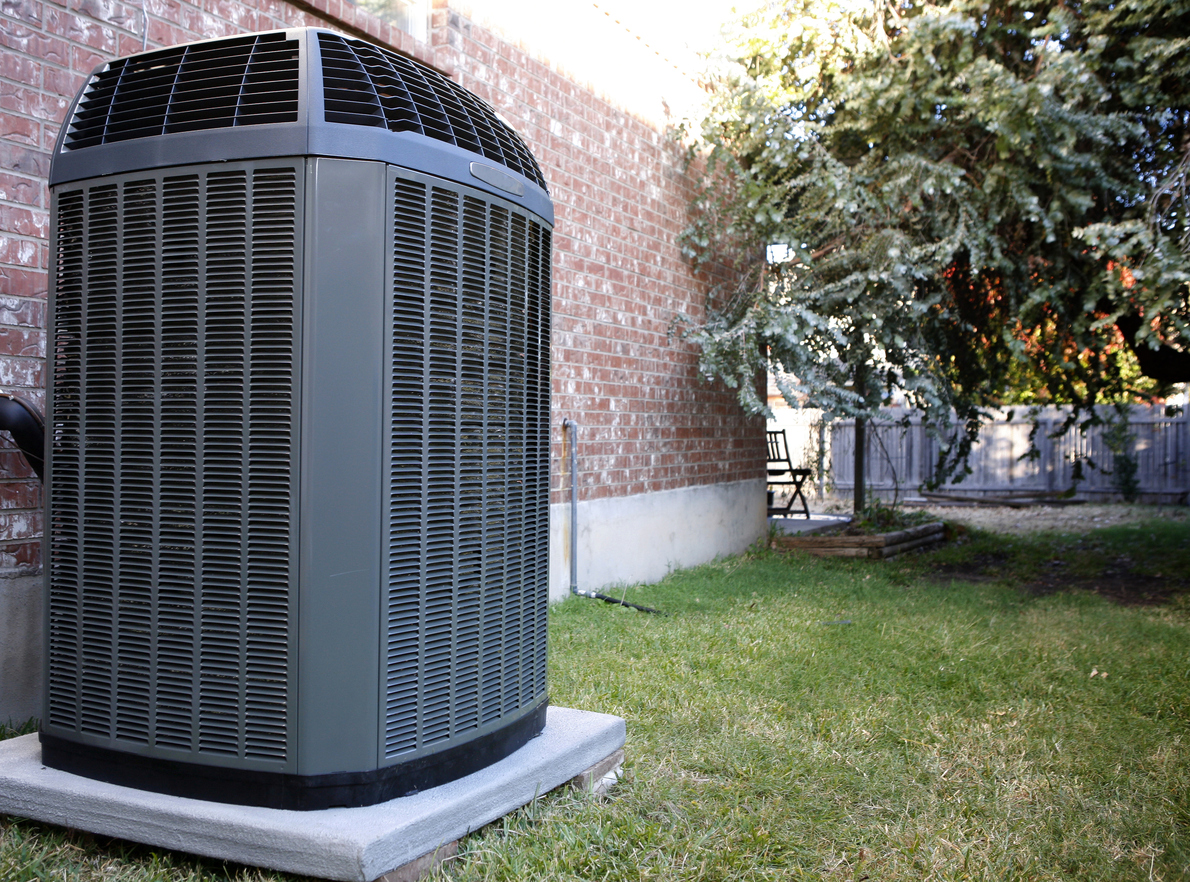What Are the Common Plumbing Issues Found in New Homes?
Table of Contents
- How Do You Detect a Plumbing Problem?
- What Are the Common Symptoms of Interior Plumbing and Drainage Issues?
- What Are the Common Mistakes in Plumbing?
- What Areas Should You Check in a New Home?
- What Are the Plumbing Challenges for New Homes?
- Key Takeaway
- Get the best plumbing services for your new home from Absolute Electrical Heating and Air.
Before you move into a new house, there are many things that you have to look into. One of the most crucial but often overlooked is the plumbing system. While new homes are expected to be free from major issues, it is not uncommon to encounter a few plumbing problems.
Issues in your new home plumbing can cause significant inconvenience, especially if these entail repairs. By being aware of these potential issues, you can take proactive measures to detect and resolve the problems early on.
How Do You Detect a Plumbing Problem?
Detecting any plumbing problem promptly prevents potentially serious damage and costly repairs. To do this, there are several signs that homeowners can look out for. Unusual sounds or noises such as rattling pipes, water discoloration, clogged drains, and leaks are common indicators of problems in your plumbing.
These are common plumbing issues that can develop in various parts of the house. If you pay attention to them and promptly address any abnormalities, you can minimize their impact and ensure the smooth functioning of your plumbing system.
What Are the Common Symptoms of Interior Plumbing and Drainage Issues?
The following are indications that there’s something amiss with the interior plumbing of your new home:
1. Slow-Moving Drains
If your toilets, sinks, or showers are draining water slowly, it could indicate a clog or blockage in the plumbing system. This could be caused by debris, mineral buildup, or improper pipe slope. Slow-moving drains should be addressed promptly to prevent complete blockages or potential pipe damage.
2. Gurgling Noises
Strange bubbling sounds that originate from your toilets are often a sign of trapped air in your plumbing. Improper venting, blockages, or issues with the drain pipes can cause this. While gurgling noises are common in many households, you should not ignore them as they can indicate underlying plumbing problems that require attention.
3. Foul Odors
Persistent foul smells emanating from the drains can indicate sewer line issues, such as blockages, leaks, or a malfunctioning sewer vent. The odors can be quite unpleasant and be potential health hazards. They should be addressed immediately to maintain a healthy and comfortable living environment.
4. Water Backups
These usually occur when water does not flow freely through the plumbing system, leading to an overflow or backup of your sinks or toilets. This is often due to a major blockage and, at times, improper pipe installation. Backups can escalate to water damage if not addressed right away.
5. Mold Growth
The presence of mold in areas near plumbing fixtures or on walls means that you have plumbing issues. Persistent moisture caused by leaks or faulty drainage can create an ideal environment for mold growth. The fungi can harm your health and should be removed by experts to prevent further damage to you, your family, and your home.
What Are the Common Mistakes in Plumbing?
Plumbing for new construction sites is challenging as mistakes can be wittingly or unwittingly committed. These can include the following:
1. Inadequate Planning
Insufficient planning on installing the plumbing can lead to many problems. These can involve choosing the wrong pipe size or placing this incorrectly, which can easily result in leaks or poor drainage. Proper planning is essential to ensure an efficient and functional plumbing system.
2. Use of Incorrect Materials
Using the wrong materials in plumbing installations can cause significant issues. For example, mixing copper and galvanized pipes can lead to corrosion and leaks. Choosing substandard or non-durable materials can result in a disaster like water damage.
3. Poor Pipe Connections
Connecting pipes properly is vital to prevent leaks and ensure the integrity of the plumbing system. Among other things, this means that the correct soldering process should be followed. Otherwise, reduced water pressure can take place.
4. No Regular Maintenance
Neglecting regular maintenance and inspections can contribute to the emergence of many common plumbing issues. Over time, pipes will deteriorate, and blockages will occur, but the lack of plumbing maintenance can cause these problems to crop up earlier than expected.
What Areas Should You Check in a New Home?
The following are the places you must inspect before deciding to buy a new house:
1. Main Water Supply
You must check the main water supply line in a new home. For starters, ensure that the shut-off valve is easily accessible and functions properly. Also, examine if the water pressure is at a level that meets your needs. Lastly, look for any signs of leaks or damage near the supply line connection point.
2. Interior Plumbing Fixtures
Many new home construction problems often involve interior plumbing. Thus, you should check the available fixtures, including sinks, faucets, toilets, and showers. Examine their physical condition to ensure that they are in good working order. If you can, run the water and see if there’s no problem with the drainage.
3. Exterior Plumbing
Don’t forget to inspect the exterior plumbing of the house as well. Check the condition of the sewer lines and septic tanks, looking for signs of leaks, blockages, or tree root intrusions. Test all outdoor faucets and sprinkler systems to ensure they are functioning properly and don’t have any leaks.
What Are the Plumbing Challenges for New Homes?
When you purchase a house that looks brand new, it’s natural to expect that everything is fine. Unfortunately, the following are common plumbing issues even in newly-built homes:
1. Faulty Installation
Incorrect installation of plumbing systems can lead to various problems. For instance, using the wrong pipe size or configuration may result in restricted water flow or cause pressure issues.
2. Low-Quality Plumbing
Using substandard materials when installing new house plumbing can result in frequent leaks and premature wear and tear of the pipes. Low-quality fittings and fixtures are prone to cracks, corrosion, and breakages, leading to disruptions in water supply.
3. Inadequate Insulation
Insufficient insulation can cause problems like frozen pipes, common in places with colder climates. If the pipes burst, water damage can ensue. Additionally, poor insulation can result in energy inefficiency, leading to increased utility costs.
4. Uncompleted Plumbing Tests
In some cases, new house plumbing does not undergo comprehensive tests before the property is put up for sale. This can leave potential issues undetected, such as leaks or faulty connections. If the plumbing tests are not completed, the new homeowners will be disappointed after moving into their new property.
Key Takeaway
Understanding various new home construction problems, especially in the plumbing aspect, is essential for homeowners to ensure a hassle-free moving-in experience. Remember that even newly-built houses are not entirely free of problems, and you should be prepared to spend time and effort resolving them.
This does not mean, however, that you should address the problem yourself, especially if it involves plumbing. For best results, you should always choose to get the services of a reputable plumbing company.
Get the best plumbing services for your new home from Absolute Electrical Heating and Air.
Plumbing for new construction projects is not for amateurs. When it comes to ensuring the efficiency and reliability of your new home’s plumbing system, trust the experts at Absolute Electrical Heating and Air.
Our team of skilledDenver plumbers specializes in providing top-notch plumbing services for both old and new houses. From meticulous installation to thorough inspections, we have the expertise to handle any plumbing challenge. Call us today.
CONTACT US
Request Service


Save Every Year with an Absolute Advantage Membership
Expert Annual System Safety Inspections & More
- Priority service
- Waived dispatch fees
- Yearly furnace, A/C, & electrical system inspections
- 10% discount on repairs and additional diagnostic services
- Up to $500 off HVAC & electrical panel replacements




